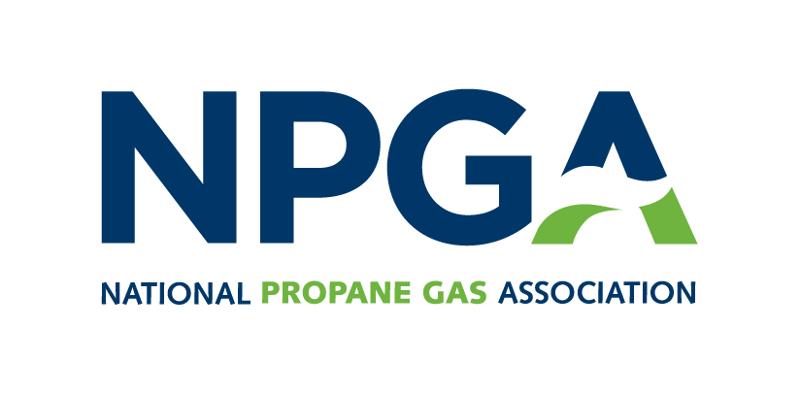Wednesday, November 21, 2018
The National Propane Gas Association (NPGA) has provided updates on its key advocacy issues. During the association’s Fall board of directors and related committee meetings, held Sept. 30 through Oct. 2 in Houston, NPGA president and CEO Richard Roldan and members of the association’s legislative and regulatory staff outlined the latest news on these “90-Day Criticals.” 
First was the Crane Rule. With the Nov. 10 compliance date nearing, NPGA was continuing its efforts to achieve an exemption for propane marketers. During the event, the association issued a call for members of the industry to email the White House and cc their Senators, asking them to intervene with OSHA on the industry’s behalf. In at least two of the meetings held during the event, speakers asked members of the audience to send those emails, and to ask others at their companies to do the same, then paused to give them time to do so. Speakers also noted that many propane marketers have hosted site visits for members of Congress, so legislators could get a better understanding of the issue by seeing the marketers’ cranes in action. They noted that November through January, 2019, the first months following the midterm election, would be a good time for marketers to invite new legislators for a site visit.
Also on the agenda was Chemical Facility Anti-Terrorism Standards (CFATS) reauthorization. The current authorization for CFATS is set to sunset on Jan. 19, 2019. NPGA is seeking a retail facility exemption for propane facilities. The association is working with a coalition of industries regulated under CFATS. Speakers at the Fall meetings noted that if a propane marketer has more than 60,000 pounds of propane at their facility or a customer’s facility, CFATS affects them. At least two speakers said they have found that different inspectors may have different opinions about what marketers must do to meet the requirements of CFATS.
Another 90-Day Critical addressed during the meetings was alternative fuels tax credits. NPGA is seeking long-term extension of both the Alternative Fuel Credit and the Alternative Fuel Vehicle Refueling Property Credit, perhaps five-year extensions rather than the one-year extensions that have been issued in the past. The previous tax credits expired in 2017; NPGA is active in a coalition that includes more than 300 organizations pushing for an extension of these tax credits for 2018.
A fourth key advocacy issue addressed during the meetings was enhanced state engagement. Speakers offered an update on NPGA’s state engagement program, which is meant to increase communication and resource efficiency between state association affiliates as well as with NPGA. Two state engagement managers who had joined NPGA within the previous two months were introduced. Eric Sears, manager, state association relations, will facilitate NPGA’s communications with state and regional associations. He previously worked with a Midwestern marketer for 15 years. Jacob Peterson, manager, state engagement, will communicate the benefits of propane to legislators and other policymakers. He previously worked for Wisconsin Congressman Jim Sensenbrenner for nearly seven years.
The three-day event also included meetings of state associations and NPGA committees, councils, sections, and task forces. —Steve Relyea

First was the Crane Rule. With the Nov. 10 compliance date nearing, NPGA was continuing its efforts to achieve an exemption for propane marketers. During the event, the association issued a call for members of the industry to email the White House and cc their Senators, asking them to intervene with OSHA on the industry’s behalf. In at least two of the meetings held during the event, speakers asked members of the audience to send those emails, and to ask others at their companies to do the same, then paused to give them time to do so. Speakers also noted that many propane marketers have hosted site visits for members of Congress, so legislators could get a better understanding of the issue by seeing the marketers’ cranes in action. They noted that November through January, 2019, the first months following the midterm election, would be a good time for marketers to invite new legislators for a site visit.
Also on the agenda was Chemical Facility Anti-Terrorism Standards (CFATS) reauthorization. The current authorization for CFATS is set to sunset on Jan. 19, 2019. NPGA is seeking a retail facility exemption for propane facilities. The association is working with a coalition of industries regulated under CFATS. Speakers at the Fall meetings noted that if a propane marketer has more than 60,000 pounds of propane at their facility or a customer’s facility, CFATS affects them. At least two speakers said they have found that different inspectors may have different opinions about what marketers must do to meet the requirements of CFATS.
Another 90-Day Critical addressed during the meetings was alternative fuels tax credits. NPGA is seeking long-term extension of both the Alternative Fuel Credit and the Alternative Fuel Vehicle Refueling Property Credit, perhaps five-year extensions rather than the one-year extensions that have been issued in the past. The previous tax credits expired in 2017; NPGA is active in a coalition that includes more than 300 organizations pushing for an extension of these tax credits for 2018.
A fourth key advocacy issue addressed during the meetings was enhanced state engagement. Speakers offered an update on NPGA’s state engagement program, which is meant to increase communication and resource efficiency between state association affiliates as well as with NPGA. Two state engagement managers who had joined NPGA within the previous two months were introduced. Eric Sears, manager, state association relations, will facilitate NPGA’s communications with state and regional associations. He previously worked with a Midwestern marketer for 15 years. Jacob Peterson, manager, state engagement, will communicate the benefits of propane to legislators and other policymakers. He previously worked for Wisconsin Congressman Jim Sensenbrenner for nearly seven years.
The three-day event also included meetings of state associations and NPGA committees, councils, sections, and task forces. —Steve Relyea

